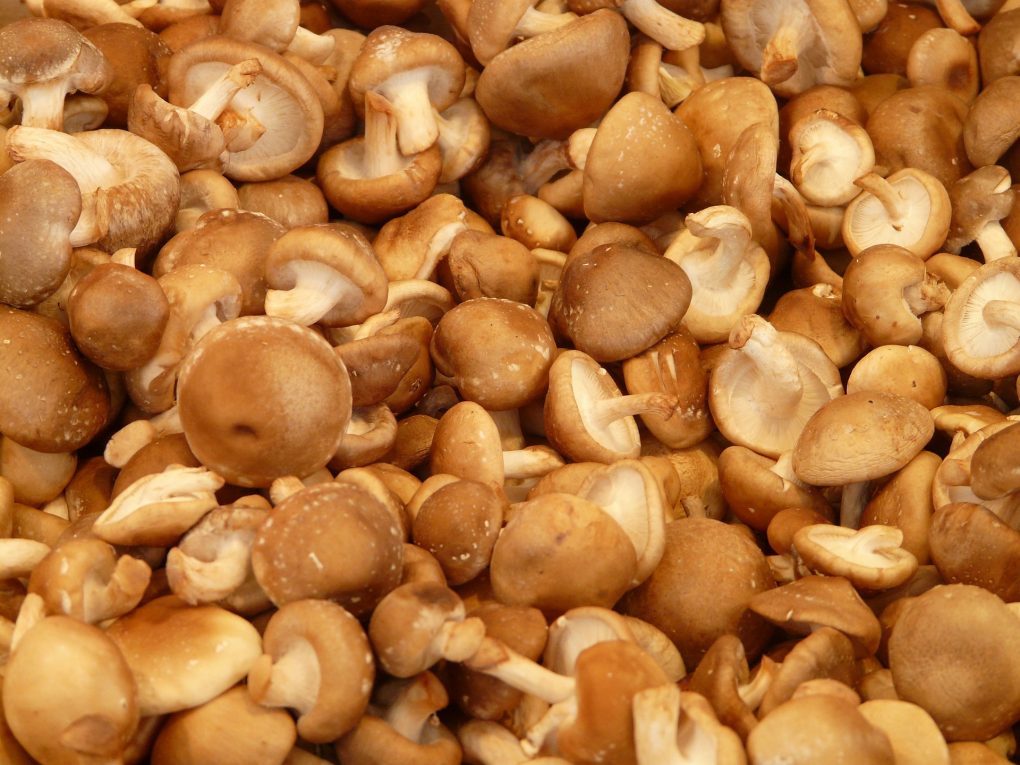
Amazing Health Benefits of Shiitake Mushrooms
It is said that Polish people love mushrooms and they do enjoy picking them, as well as eating and growing. In our country mushrooms are valued mainly for their taste and flavor. However, few of us know how rich they are in nutrients and biologically active compounds. Shiitake are one of the best known mushrooms when it comes to health benefits.
Shiitake is the most common species of mushrooms grown in the Far East. It has been grown in Japan and China for many centuries. In recent years, interest in this mushroom has also increased in Poland. Its great popularity results from its unique health and nutritional values and intense taste.
Health properties
Shiitake mushrooms are often used in Chinese medicine, where they are called the elixir of life. Research studies have shown that shiitake have immunostimulatory, antibacterial, antiviral, anti-inflammatory, antioxidant, and anti-cancer effects. It is also believed that substances derived from shiitake have the ability to lower cholesterol and triglycerides in the blood, normalize pressure and glucose levels, help in the fight against excessive body weight, and also protect the liver.
Nutritional value
Shiitake mushrooms, like all mushroom species, are low-calorie products due to high water content. Their relatively good nutritional value stems from easily digestible protein, dietary fiber, polysaccharides (β-glucans), as well as minerals and vitamins.
Shiitake are a good source of B vitamins. The content of niacin, folic acid and riboflavin (vitamin B2) is particularly high in them, the amount of B2 is even greater than in vegetables. According to research studies, the content of vitamin B1 in shiitake fruiting bodies is comparable to the content in cereal grains and fruit, and even higher than in eggs. Shiitake mushrooms also contain a lot of vitamin C.
When it comes to the bioavailability of folates from these mushrooms, it is comparable to that in vegetables. It is also worth mentioning that mushrooms (including shiitake), apart from animals, are the only organisms with the ability to biosynthesize vitamin D. These mushrooms provide us with ergocalciferol – one of the forms of vitamin D, also known as vitamin D2.
In terms of minerals, shiitake, compared to other mushrooms, have a very high calcium content and are rich in potassium, magnesium, sodium, zinc and phosphorus. Thanks to these nutritional values, shiitake mushrooms can be an attractive food product, especially for vegetarians.
How to prepare shiitake mushrooms
Shiitake, like all mushroom species, belong to very unstable products (fresh mushrooms can be stored in the fridge for up to 3 days). Hence the need process them in a short time. Shiitake mushrooms can be frozen, dried or marinated. However, they are most often consumed boiled or fried. I like to add them to soups and fried dishes. They are a popular ingredient in vegetarian dishes. Before cooking, remove hard stems. They can then be used to make sauces. Shiitake should not be boiled for a long time, which is why they are often added at the very end of cooking.
On the other hand, remember that mushrooms are hard to digest and remain in the stomach for a long time. Therefore, they should not be consumed by children, the elderly and people with gastric problems.
Shiitake may seem to be an exotic product for many people. However, it is worth including them in your diet as they taste great and are very healthy.
Bibliography:
- Kupcova K, Stefanova I, Plavcova Z, Hosek J, Hrouzek P, Kubec R. Antimicrobial, Cytotoxic, Anti-Inflammatory, and Antioxidant Activity of Culinary Processed Shiitake Medicinal Mushroom (Lentinus edodes, Agaricomycetes) and Its Major Sulfur Sensory-Active Compound-Lenthionine. Int J Med Mushrooms. 2018;20(2):165-175.
- Asada N, Kairiku R, Tobo M, Ono A. Effects of Shiitake Intake on Serum Lipids in Rats Fed Different High-Oil or High-Fat Diets. J Diet Suppl. 2018 :1-12.
- Gaitán-Hernández R, Zavaleta MAB, Aquino-Bolaños EN. Productivity, Physicochemical Changes, and Antioxidant Activity of Shiitake Culinary-Medicinal Mushroom Lentinus edodes (Agaricomycetes) Cultivated on Lignocellulosic Residues. Int J Med Mushrooms. 2017;19(11):1041-1052.
- Maschio BH, Gentil BC, Caetano ELA, Rodrigues LS, Laurino LF, Spim SRV, Jozala AF, Dos Santos CA, Grotto D, Gerenutti M. Characterization of the Effects of the Shiitake Culinary-Medicinal Mushroom, Lentinus edodes (Agaricomycetes), on Severe
- Gestational Diabetes Mellitus in Rats. Int J Med Mushrooms. 2017;19(11):991-1000.
- Nisar J, Mustafa I, Anwar H, Sohail MU, Hussain G, Ullah MI, Faisal MN, Bukhari SA, Basit A. Shiitake Culinary-Medicinal Mushroom, Lentinus edodes (Agaricomycetes): A Species with Antioxidant, Immunomodulatory, and Hepatoprotective Activities in Hypercholesterolemic Rats. Int J Med Mushrooms. 2017;19(11):981-990.









Comments No Comments
Join the discussion…